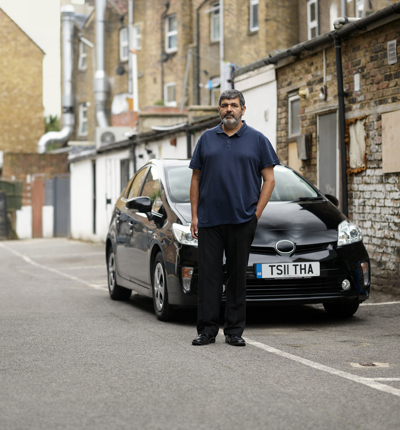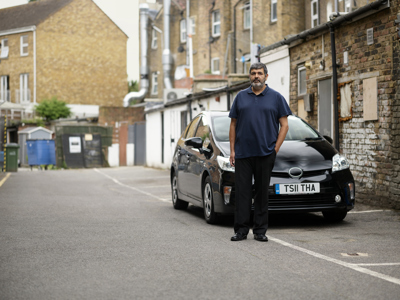
Bolt drivers win ruling that they are workers in legal claim believed to be worth more than £200 million
Thousands of Bolt drivers have won their legal claim to be classed as workers, giving them rights that include paid holiday and to be paid at least the minimum wage.
Posted on 08 November 2024
Lawyers believe the compensation owed to their 15,000 clients could be worth more than £200 million.
In a judgment handed down this morning, Friday 8 November 2024, the Employment Tribunal ruled that the Bolt drivers represented by law firm Leigh Day are not, as Bolt claimed, self-employed contractors who run their own business.
Instead, the terms and conditions that Bolt applies to the drivers’ relationship with the company, and the control that the firm has over the drivers’ work, means that they are workers.
As workers, they are entitled to workers’ rights and protection under employment law.
The ruling follows a three-week hearing in the Employment Tribunal in September 2024. It affects all of the 100,000-plus drivers who take on work through the Bolt private hire hailing app.
They can argue they should be classed as workers with all the employment rights and protection the classification includes.
Those drivers who are part of the Leigh Day legal claim will also be entitled to backdated compensation for underpayment of the minimum wage and unpaid holiday pay. There is still time to join the legal claim and claim the right to compensation.
Leigh Day believes that on average, a driver could be entitled to compensation of over £15,000.
Another hearing is expected to take place as early as next year, when the Employment Tribunal will decide how much compensation for unpaid holiday pay and lost income each driver will receive.
Bolt drivers launched their own legal claim to be classed as workers following the 2021 Supreme Court ruling that Uber drivers are workers. Bolt drivers claimed that the ruling also applies to their working situation. Leigh Day also represented Uber drivers in their successful legal claim.
The Estonian-based Bolt ride-hailing app’s operators announced shortly before the hearing was due to start, that although it does not consider its drivers to be workers, as of 1 August 2024, they would receive holiday pay and the National Living Wage, the same rights that drivers were fighting for in their claim. However, Leigh Day argued that the way Bolt calculates the payments does not comply with employment legislation.
Bolt currently only pays its drivers for time spent on trips. However, the Employment Tribunal decided that drivers should also be paid for time spent logged into the App, providing they are not also logged into Apps for other private hire operators.
The Employment Tribunal’s ruling means that Bolt will need to provide paid holiday and ensure drivers are paid the minimum wage for any periods they work.
The Employment Tribunal will hold a further hearing to decide how much compensation the Bolt claimants are entitled to.
The 15,000 current Bolt claimants are represented by Leigh Day employment team solicitor Charlotte Pettman.
Charlotte Pettman said:
“We are very pleased that the Employment Tribunal has found in favour of our Bolt driver clients. This judgment confirms that gig economy operators cannot continue to falsely classify their workers as independent contractors running their own business to avoid providing the rights those workers are properly entitled to. We call on Bolt to compensate our clients without further delay.”
Bolt driver Shuhel Ahmed said:
“This is brilliant news and such a relief. I am so glad that Leigh Day has been successful with this part of the legal claim. It’s satisfying to know that our hard work and long hours have been recognised, and that we can fight on for better pay and conditions, and for compensation will make a huge difference to my family’s life.”

Shuhel (pictured above) is married and has three grown up sons. He lives in South London.
Leigh Day also represents 700 Addison Lee drivers in a similar claim currently being heard by the Watford Employment Tribunal.
A parallel claim on behalf of hundreds of Ola drivers is due to be heard by the London Central Employment Tribunal from Tuesday 12 November. It is scheduled to last for eight days.
Join your Bolt colleagues

Bolt drivers claim
We strongly believe that drivers should be classed as workers, rather than self-employed contractors, and will fight your corner throughout the legal battle to help make this a reality



